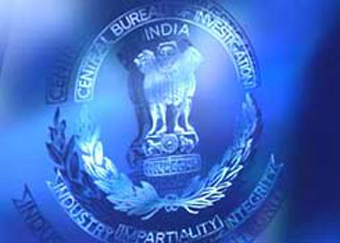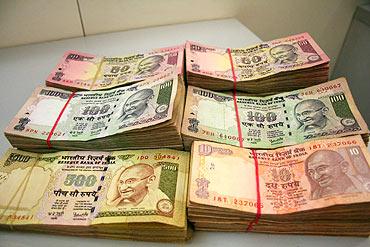Photographs: Courtesy: http://cbi.nic.in/
Why did the Centre hastily decide to exempt the CBI from the purview of the Right to Information Act? B Raman addresses some questions about the role of the investigative agency and the government's 'national security concerns'.
I have received a number of questions from readers regarding the recent decision of the government to totally exempt the Central Bureau of Investigation from the purview of the Right To Information Act.
For the last four years, the CBI had not enjoyed this exemption. This sudden decision of the government to grant a total exemption to the CBI has been justified on grounds of national security. There has been criticism of the government's action from advocates of greater transparency in the functioning of our intelligence and investigation agencies. I have tried to answer some of these questions:
Is the CBI a national security organisation like the Intelligence Bureau and the Research & Analysis Wing?
No, it is not, but it does play a role in national security to a limited extent. It is essentially an agency for the investigation of criminal cases entrusted to it. These cases fall into two categories:
1) Cases of corruption and other common law crimes of a serious nature
2) Cases of terrorism and related offences such as the counterfeiting of currency notes.
CBI can't be treated on par with IB, R&AW
Image: The CBI logoPhotographs: Courtesy: http://cbi.nic.in/
After the National Investigation Agency came into existence in 2009, the responsibility for the investigation and prosecution of terrorism-related cases of a specified nature was transferred to it from the CBI. Despite this, the CBI continues to have a responsibility for follow-up action on cases registered before the NIA came into existence.
The CBI played an important role in the investigation of the 1993 serial blasts in Mumbai and other major terrorist attacks. It continues to hold the responsibility for the investigation and prosecution of important cases involving mafia groups and their nexus with terror groups.
When the NIA gets going completely, the CBI's responsibility for the investigation and prosecution of cases relating to terrorism and mafia activities will be considerably reduced. The agency will focus almost entirely on the investigation of corruption cases and other common law crimes not necessarily having an impact on national security.
However, the CBI cannot be treated on par with the IB and the R&AW because it is not a clandestine organisation operating covertly. Whereas the IB and the R&AW are not subject to Parliamentary scrutiny, some aspects of the CBI's work such as its budget are subject to scrutiny by relevant committees of the Parliament such as the Estimates Committee.
Thus, to treat the CBI on par with the IB and the R&AW and giving it the benefit of total exemption was unwarranted.
The government's decision may have been related to the Bofors scam
Image: The 55 mm Bofors artillery gunWhat made the government bring the CBI under the totally exempted category?
It is difficult to answer this question categorically in the absence of details. RTI advocates should examine whether there is scope for forcing the government to disclose these details which made it reverse its earlier decision of not exempting the CBI.
Vague answers such as "national security grounds" should not be accepted. The apparent suddenness and abruptness with which the government took this decision would indicate that the CBI was probably in receipt of a request under the RTI Act for some information which it was not in a position to legitimately deny.
The government, therefore, decided that instead of denying the request for the specific information, which could have put it in an embarrassing position, it would totally exempt the CBI. One example of such information that I can think of could be related to the past investigation in the Bofors scam case. There could have been other similar cases.
The public has the right to a lot of information
Image: Counterfeiting currency is a matter of national security concernWhy is the Bharatiya Janata Party supporting the government's decision to grant total exemption to the CBI?
One possibility is that the BJP genuinely feels that since the CBI had in the past investigated terrorism-related cases and now continues to investigate mafia-related cases, it should have the benefit of total exemption.
Is granting total exemption to the CBI the only way of preventing disclosure of information related to cases with national security implications such as terrorism, mafia activities, counterfeiting etc?
No. Without including the CBI in the list of totally exempted organisations, the government could have suggested to the agency that it take advantage of those provisions in the Act for denying information in cases having a bearing on national security on a case by case basis. The public has the right to a lot of information related to the CBI such as its administration, methods of recruitment and training, budgetary control etc.
At the same time, it should not have the right to seek information related to the investigation of on-going cases -- whether of corruption or of other common law crimes or terrorism-related. These two requirements could have been easily met by continuing to keep the CBI in the not-exempted category.





article